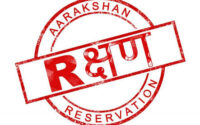DOES THE PROHIBITION OF THE SALE OF LIQUOR IN SOME STATES VIOLATE ARTICLE 19(1)(g)?
This article is written by Simran of Mody University of Science & Technology, Lakshmangarh, Rajasthan and curated by Dheepika R of ICFAI Law School, Hyderabad.
Following the easing of restriction, India has entered the third phase of nationwide lockdown. Liquor stores opened all over the country after some long days of lockdown except the States of Bihar, Gujrat, Mizoram and Nagaland as well as union territory of Lakshadweep. The large crowd rushed towards the liquor stores after the lockdown 3.0 which helped the states in earning high revenue. Some States imposed duties and taxes on liquor and “Special Corona fee” in Delhi. Excise duty is the main source of income for the state.
Some States imposed a total prohibition from the sale of liquor in the state to prevent people from queuing up in front of State-run liquor outlets during the COVID-19 outbreak. But this non availability of liquor led to suicide and consumption of homemade liquor which was hazardous for health. It also violates their fundamental right which is conferred in Part 3 of the Indian Constitution under Article 19(1) (g).
Article 19 of the Constitution guarantees to the citizen their fundamental freedoms (a) Freedom of Speech and Expression (b) Freedom of Assembly (c) Freedom to form Associations or Unions or Co-operative Societies (d) Freedom to movement (e) Freedom to reside and to settle (g) Freedom of profession, occupation, trade or business; but it restricted by the Constitution itself by conferring upon the State a power to impose a law with reasonable restrictions as may be seen necessary in the interest of the society.
The term “reasonable restriction” in Article 19 (6) means the limitation imposed on a person in the enjoyment of his right should not be of excessive nature as it implies the intelligent care and deliberation. As it strikes a proper balance between freedom guaranteed in Article 19 and the special control which is mentioned under Article 19 (6).
Article 19(1) (g) talks about Freedom of profession, occupation, trade or business. However, the right to carry on a profession, trade or business is not unqualified; it can be restricted and regulated by an authority of law and the State can impose reasonable restrictions in the interest of the public.
Trading of liquor is not a fundamental right:
In Khoday Distilleries Ltd. v. State of Karnataka, ((2019) 4 SCC 376) the Supreme Court held the rights under Article 19 (1) are not absolute but qualified and the State is authorized under clause (2) to (6) of Article 19 to impose reasonable restriction on this right. A citizen has no fundamental right to trade or business in activities which are immoral and criminal in nature i.e. outside the commerce which is also known as res extra commercium.
The restriction on the right to trade in liquor can be imposed not only by law enacted by the legislation but it can be imposed by any subordinate legislation as well. The State has exclusive rights regarding portable liquor. It can also be provided by the Executive as long as it is issued by the Governor of the State. Sometimes, people confuse the term “business” with “trade” as it is more comprehensive than the word “trade” since it includes manufacture while the word “trade” may not include ordinary.
In the case, State of Tamil Nadu Rep. By Its Secretary Home, Prohibition & Excise Dept. & Ors v K.Balu (Civil Appeal Nos. 12164-12166 of 2016), the Supreme Court of India has ordered that there would be a ban on the sale of liquor within a distance of 500 meters from any national or state highways. The apex court modified its order stating an exemption within 220 meters of any highway for small towns or municipalities where the population of people will be less than 20,000. In the order, the Hon’ble Supreme Court has clearly stated that any hotel, bar or pubs serving alcohol will be included in the ban.
Exceptions of prohibition on sale of liquor:
- The State has the power to prohibit the manufacture, sale, possession, distribution and consumption because it is a dangerous article of consumption and also because the directive principle contained in Article 47 of the Constitution, except when it is used for medicine purposes. States can create a monopoly in such business either by itself or by any agency. The creation of monopoly rights in a few persons is not unreasonable. Thus, in Cooverji v. Excise Commissioner (1954 AIR 220),it was pointed out by this exception that a law which creates a monopoly to sell liquor in favour of a few persons was held valid.
Although, in the case State of Bombay v. F. N. Balsara (1951 AIR 318), the Supreme Court held that absolute prohibition of manufacture or sale of liquor is permissible and the only exception can be for medical preparation medicines.
- Once sale of liquor is permitted by a State Government, every citizen has a fundamental right to apply for permission to trade in liquor. However, “It shall be open for the concerned State Government to consider non-direct sale including on-line sale/home delivery of liquor to facilitate social distancing”, the Supreme Court ordered in a petition filed by one Guruswamy Nataraj to facilitate social distancing.
Conclusion:
It is concluded that liquor is not an ordinary commodity, while it carries connotations of pleasure and sociability in the minds of many, but its harmful consequences outweigh the pros of its use. National monitoring systems need to be developed to keep track of alcohol consumption and its consequences, and to raise awareness amongst the public and policy-makers. It is up to governments and concerned citizens to curb the situation by proper implementation of laws that minimize the harm caused by liquor. Thus, the fundamental rights which are given under Article19 (1) (g) are provided to carry the business which is for the benefit of the public and society as a whole.


